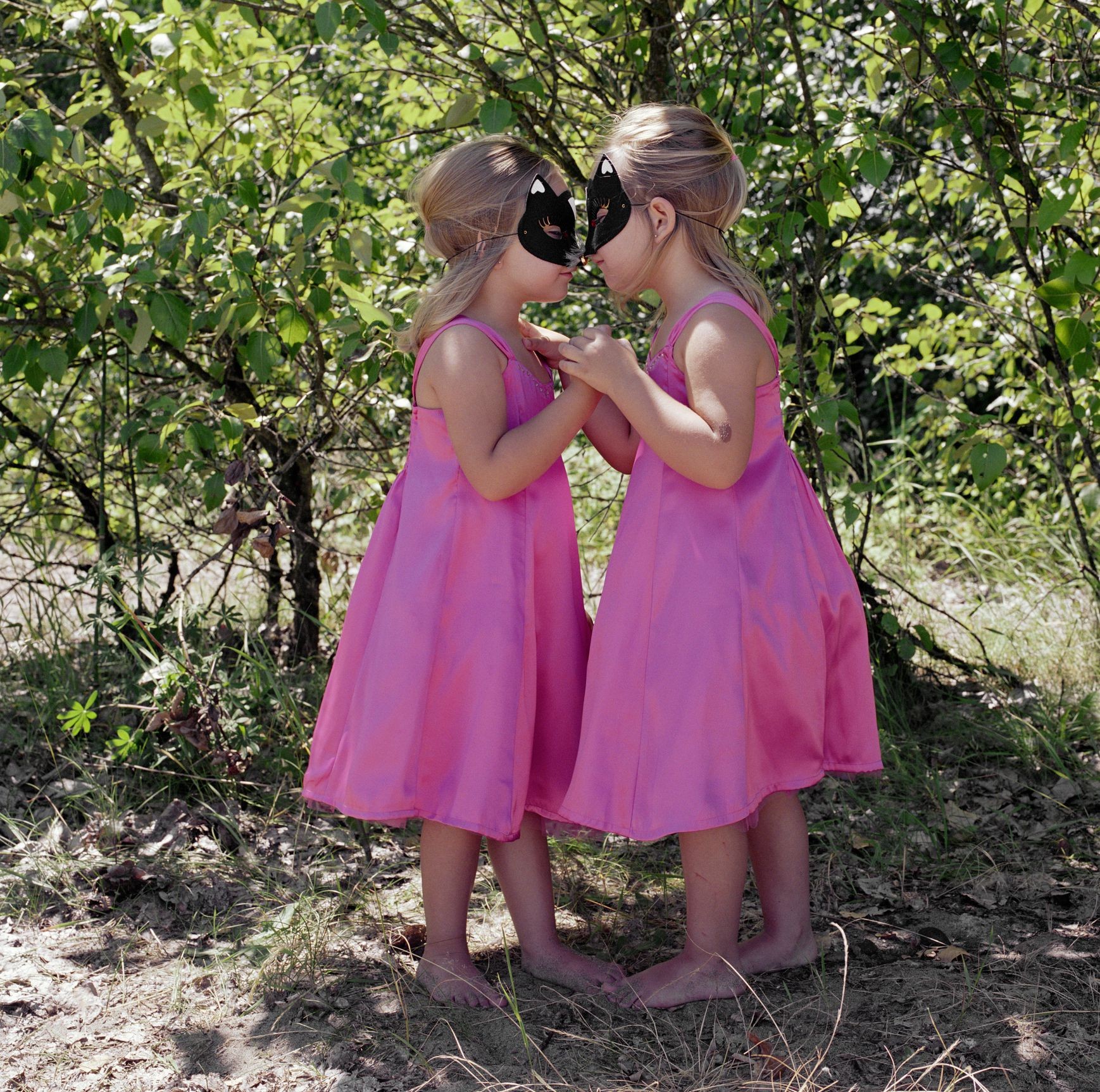Ways to Help People Tell Your Twins Apart
Parents of twins are constantly being asked "How do you tell them apart?" As multiples enter school, it becomes important for teachers, classmates and other non-family members to be able to identify each child, especially when they are in the same class. Not only does it enhance the individual child's self-esteem to be recognized, but it also reduces stress for the teachers.
1 Don't Match Your Twins' Clothes

Dressing twins alike is a divisive issue among the multiples community. Some do, some don't. Whatever your preference, consider refraining from the practice when your kids are in the care of outsiders. It makes it easier for everyone by providing an immediate visual clue.
2Start Each Day The Right Way
As you enter class each day, greet the teacher and give them a clear indication of who is who as the day begins. There are plenty of ways to accomplish this in a subtle way without taking up too much of the teacher's time or making the twins feel uncomfortable. A quick comment distinguishing their clothing style can suffice. ("Molly's in blue today, while Polly's shirt is red.) Or, if the children can communicate sufficiently, have them say good morning using their names. ("Good morning, Mrs. Smith. I'm Molly!")
3Dress Code
Starting at birth, many families elect to use a system of color coding for their multiples. (Mike=red, Luke=blue, etc.) Consistently selecting clothing and accessories in the assigned color not only helps distinguish the individual children but also their belongings, such as pacifiers or toys. Dressing twins in a color code when they start school can make it easier on teachers as well.
4Name Tags
As a last resort, or perhaps in the earliest days of the school year, you may wish to consider identifying your twins with name tags. A simple label pinned to the back of their shirts readily identifies them to their class. Be sure to make the tags large enough for the teacher to read from across the room.
5Physical Characteristics
Even the most identical twins have some distinguishing characteristic. Many physical attributes are determined by environment rather than genetics. Identify a telltale feature for each child, for example, a freckle, mole, eyebrow arch or hair whorl. Avoid comparative features; people can't rely on them unless the twins remain together at all times.
6Play A Name Game
Associate each child's name with an attribute that distinguishes him or her. For example, in our family, Meredith has longer hair, while Lauren's is somewhat shorter. We remind people of the phrase "Meredith=More Hair, Lauren=Less Hair" to help them remember the difference. Try to find a phrase that rhymes, uses alliteration, or otherwise sticks in the memory.
7Shoes
Start the year off on the right foot by choosing different shoe styles for your twins! It's a quick and easy way to distinguish them, especially when they get old enough to choose their own clothes and resist the other techniques mentioned here. This worked very effectively for my daughters through preschool; their teachers could easily recognize them by their sneaker styles.
8Guess!
Reassure teachers and classmates that it is okay to mix up your multiples! It's going to happen from time to time, and most twins become accustomed to it. Certainly, it can be an annoyance, but it is preferable to the alternative of being ignored altogether. Encourage teachers to make a guess (they have a 50/50 chance of getting it right!) or to politely ask, "Are you Mark or Brian?"
-
For some parents, the idea of having twins is exciting. For others, it's scary. Either way, once a double bundle of joy arrives, new parents will be too happy and busy (and exhausted) to look back on how they felt before their babies were bor
-
People are very fascinated with twins and other multiples. It seems mysterious how one pregnancy can result in more than one baby. Multiple pregnancies are on the rise in recent years with more and more twins and other types of multiples being
-
It's common to be concerned about the amount of weight you will gain during pregnancy. As you might suspect, when you are having multiples you'll see more of an increase on the scale than if you were only having one baby. It's not j


